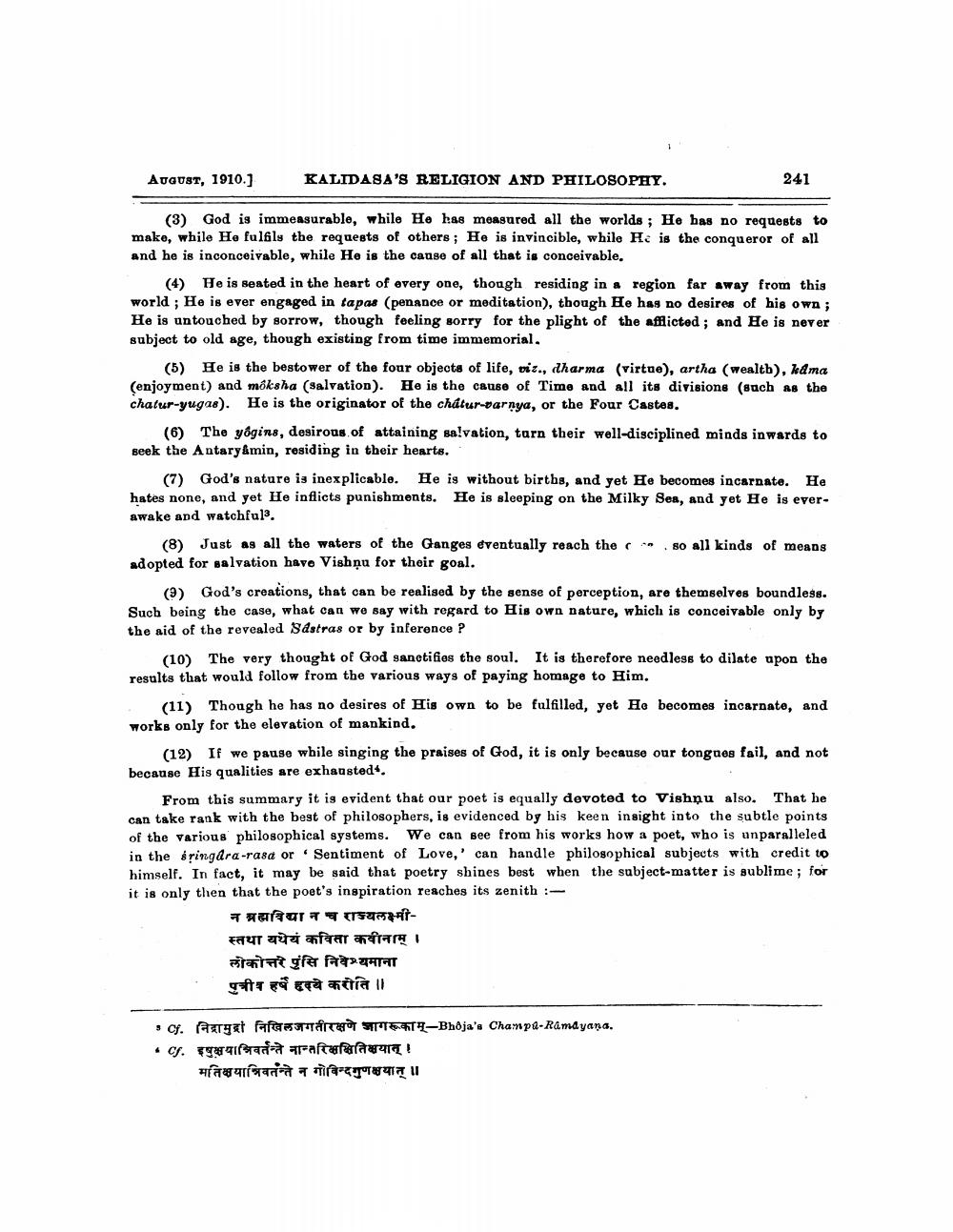________________
August, 1910.)
KALIDASA'S RELIGION AND PHILOSOPHY.
241
(3) God is immeasurable, while He has measured all the worlds ; He has no requests to make, while He fulfils the requests of others; He is invincible, while He is the conqueror of all and he is inconceivable, while He is the cause of all that is conceivable.
(4) He is seated in the heart of every one, though residing in a region far away from this world ; He is ever engaged in tapas (penance or meditation), though He has no desires of his own; He is untouched by sorrow, though feeling sorry for the plight of the afflicted ; and He is never subject to old age, though existing from time immemorial,
(5) He is the bestower of the four objects of life, viz., dharma (virtue), artha (wealth), kama (enjoyment) and móksha (Salvation). He is the cause of Time and all its divisions (such as the chatur-yugas). He is the originator of the chátur-narnya, or the Four Castes.
(6) The yôgins, desirous of attaining salvation, tarn their well-disciplined minds inwards to seek the Antary&min, residing in their hearts.
(7) God's nature is inexplicable. He is without births, and yet He becomes incarnate. He hates none, and yet He inflicts punishments. He is sleeping on the Milky Sea, and yet He is everawake and watchfuls.
(8) Just as all the waters of the Ganges eventually reach the . so all kinds of means adopted for salvation have Vishņu for their goal.
(9) God's creations, that can be realised by the sense of perception, are themselves boundless. Such being the case, what can we say with regard to His own nature, which is conceivable only by the aid of the revealed Sastras or by inference ?
(10) The very thought of God sanctifies the soul. It is therefore needless to dilate upon the results that would follow from the various ways of paying homage to Him.
(11) Though he has no desires of His own to be fulfilled, yet He becomes incarnate, and works only for the elevation of mankind.
(12) If we pause while singing the praises of God, it is only because our tongaes fail, and not because His qualities are exhausted".
From this summary it is evident that our poet is equally devoted to Vishnu also. That he can take rank with the best of philosophers, is evidenced by his keen insight into the subtle points of the various philosophical systems. We can see from his works how a poet, who is unparalleled in the bringdra-rasa or Sentiment of Love,' can handle philosophical subjects with credit to himself. In fact, it may be said that poetry shines best when the subject-matter is sublime ; for it is only then that the poet's inspiration reaches its zenith :
न ब्रह्मविद्या न च राज्यलक्ष्मीस्तथा यथेयं कविता कवीनाम् । लोकोत्तरे पुंसि निवेश्यमाना पुत्रीव हर्षे हृदये करोति ।।
cf. . cf.
at fafceresortare
4-Bhoja's Champa-Ramdyana. ada araftarlarar! मतिक्षयात्रिवर्तन्ते न गोविन्दगुणक्षयात् ।।




